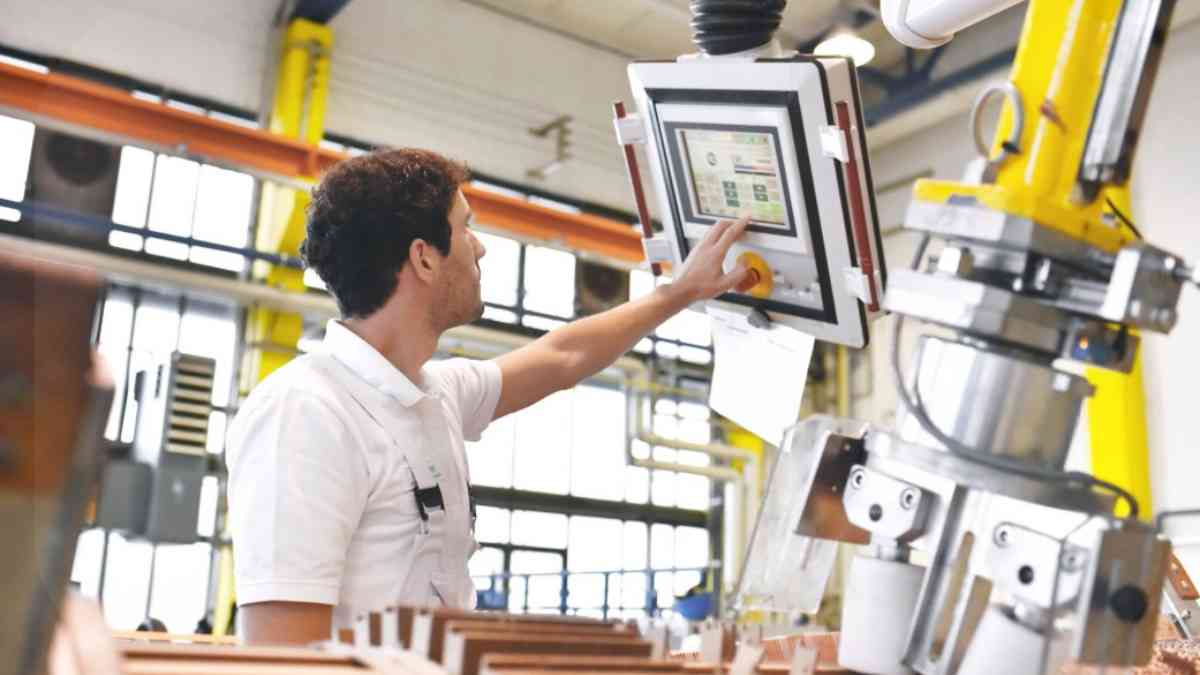Industrial Millwright Services: The Backbone of Modern Manufacturing Efficiency
How Skilled Millwrights Keep Industries Running Smoothly and Safely

In the complex world of modern manufacturing and industrial operations, a quiet but critical force ensures everything runs like clockwork—industrial Millwright Services. Often overlooked by the public, millwrights are the experts who install, maintain, repair and relocate machinery. They are indispensable to keeping factories, plants, and production facilities operating at peak performance.
This article comprehensively looks into what millwright services encompass, why they’re essential, and how businesses can benefit from investing in skilled millwright professionals.
What Are Industrial Millwright Services?
At the heart of heavy industries—whether automotive, food processing, energy, or pharmaceuticals—industrial millwrights ensure machines are correctly assembled, aligned, and functional. These are highly trained tradespeople with mechanical prowess, technical know-how, and an acute eye for precision.
Millwright services generally include:
- Machinery installation and disassembly
- Equipment maintenance and troubleshooting
- Rigging and precision alignment
- System upgrades and retrofitting
- Emergency repairs and shutdown support
Unlike general mechanics, millwrights specialize in heavy-duty systems and require extensive training, safety awareness, and mechanical skills to handle complex equipment.
The Evolution of the Millwright Trade
Millwrights have evolved from traditional wood and gear builders of water mills to modern-day mechanical experts dealing with advanced robotics and automated machinery. While their title remains rooted in history, today’s millwrights are technology-savvy professionals skilled in CAD drawings, laser alignment tools, and digital diagnostic systems.
This evolution reflects the broader transformation of manufacturing, which blends physical strength with digital intelligence. As a result, industrial millwright services today go far beyond wrench-and-bolt repairs.
Key Responsibilities and Skillsets of Modern Millwrights
Let’s break down the core responsibilities of a modern industrial millwright and what makes them so crucial:
1. Machinery Installation
Millwrights are often the first on-site when new machinery is delivered. They read blueprints and schematics to position equipment accurately, ensuring all components are aligned and secured according to technical specifications.
2. Precision Alignment
From conveyor belts to turbines, improper alignment can lead to vibration, wear, and catastrophic failures. Millwrights use dial indicators and laser alignment systems to achieve pinpoint accuracy.
3. Preventive Maintenance
Regular inspection and servicing prevent costly downtime. Millwrights monitor machine health, replace worn parts, lubricate moving systems, and recommend upgrades.
4. Emergency Repairs
When a machine breaks down, every second counts, industrial millwrights are trained to quickly diagnose issues and make immediate, effective repairs to get production back online.
5. Machinery Relocation and Rigging
Whether moving a machine across the floor or the country, millwrights handle dismantling, transportation, and reinstallation with a focus on safety and minimal operational disruption.
Benefits of Investing in Industrial Millwright Services
1. Reduced Downtime
Millwrights help avoid production halts through proactive inspections and fast troubleshooting. Preventive maintenance and skilled repairs also reduce unexpected breakdowns.
2. Increased Equipment Lifespan
Proper installation and ongoing care ensure your machinery lasts longer and performs more reliably, protecting your capital investment.
3. Enhanced Workplace Safety
Faulty equipment can pose serious safety risks. Millwrights ensure machines are secure, aligned, and compliant with safety standards, creating a safer workplace environment.
4. Cost Efficiency
Downtime and poor maintenance cost businesses thousands, if not millions. Skilled millwrights save money by catching issues early, minimizing waste, and maximizing output.
5. Greater Operational Efficiency
With every machine optimized and functioning smoothly, production lines run faster and more efficiently—giving companies a competitive edge.
Where Industrial Millwright Services Make a Difference
These services are critical in a wide range of sectors:
- Automotive Manufacturing: Assembly line machines, robotic arms, stamping equipment.
- Food and Beverage: Conveyor systems, bottling lines, refrigeration units.
- Pharmaceuticals: Cleanroom-compatible machinery, precise dosage equipment.
- Power Generation: Turbines, compressors, cooling systems.
- Mining and Metals: Crushers, conveyors, large-scale gear systems.
In each of these sectors, unplanned downtime can mean massive losses. That’s why having a skilled millwright team on standby—or better yet, on contract—is a strategic advantage.
The Tools and Technologies Used in Modern Millwright Work
Millwrights today rely on more than just hammers and levels. Their toolbox includes:
- Laser Alignment Tools for exact positioning
- Torque Wrenches for calibrated fastening
- Vibration Analysis Devices to detect early signs of wear
- CAD Software for layout planning
- Hydraulic Jacking Systems for moving heavy equipment
- Borescopes and Infrared Cameras for internal inspections
This blend of traditional hands-on skills and modern technology allows millwrights to diagnose, correct, and maintain machinery accurately.
How to Choose a Reliable Millwright Service Provider
When selecting a provider for industrial millwright services, consider the following:
- Certifications and Experience: Look for companies with experienced, certified professionals trained in multiple sectors.
- Safety Record: A strong safety culture indicates professionalism and risk management.
- Range of Services: Choose a team to handle planned installations and emergency callouts.
- Reputation: Read reviews and case studies to understand how a provider performs under pressure.
- Response Time: Fast service matters, especially in breakdown scenarios.
The best providers offer tailored service packages, 24/7 availability, and deep industry knowledge.
The Future of Industrial Millwright Services
Millwrights adapt fast as automation, and AI take over more production functions. The future millwright will be a mechanic and a technician capable of maintaining robotic arms, integrating IoT sensors, and working with data-driven diagnostics.
Furthermore, sustainability is becoming a central concern. Millwrights now retrofit old machines with energy-efficient components, aligning with greener manufacturing goals.
Why Every Manufacturer Needs a Millwright Team
Whether launching a new plant, upgrading old equipment, or maintaining 24/7 operations, having access to expert millwrights isn’t just helpful—it’s essential.
They provide the expertise needed to:
- Launch projects on time
- Prevent costly mistakes
- Maximize productivity
- Maintain safety and compliance
In short, Industrial Millwright Services are the lifeblood of every serious manufacturing operation.
Conclusion
Behind every smooth-running production line, there’s a team of expert hands tightening bolts, fine-tuning machines, and catching issues before they become disasters. These professionals might not always be visible, but without their dedication and precision, entire industries would grind to a halt.
If you’re in manufacturing, energy, food processing, or any industrial sector that relies on heavy equipment—investing in top-tier millwright services is a wise, long-term decision that protects your bottom line and your people.
Ensure your operations never miss a beat—partner with expert industrial millwright services today.



